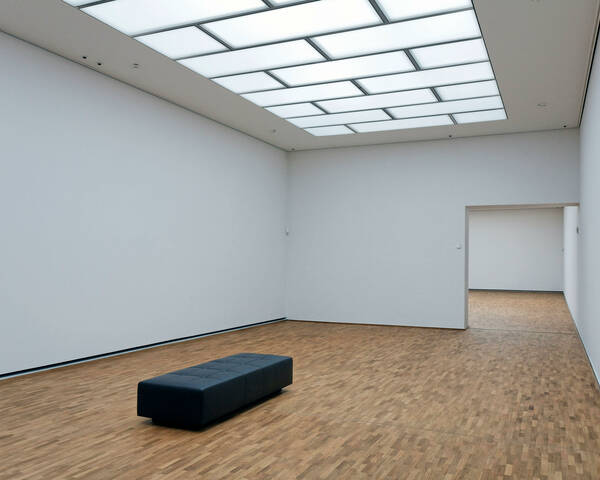You are now entering the Jewish Currents archive.
December 2: Fanfare for an Uncommon Man
 Aaron Copland, who blended modern and folk styles of music to become the best-known American classical composer of the 20th century, died on this date in 1990 at age 90. Copland was born in Brooklyn to Lithuanian Jewish immigrants who changed the family name from Kaplan. He emerged as a composer at a young age, first taking music lessons through a correspondence course and then with Ruben Goldmark, a notable teacher. In the 1920s, Copland moved to Paris and joined the expatriate community of modernist artists. Returning to the U.S. in 1925, Copland was influenced by Alfred Stieglitz’s call for American artists to make use of “the ideas of American Democracy” and help liberate American art from European influences. Copland responded by importing jazz and folk themes (including from Mexico) into his music and by organizing the American Composers Alliance. In 1935, he began composing for dance and film, and during the next decade produced such famous works as “Rodeo,” “Fanfare for the Common Man,” and “Appalachian Spring,” which won the Pulitzer Prize in 1944. Although an intensely private man, Copland lived and traveled openly with the men he loved and gave active support to leftwing causes. In 1953, his patriotic “Lincoln Portrait” was scheduled to be performed at Dwight Eisenhower’s first presidential inaugural, but the performance was canceled by red-baiting politicians, and Copland had two lengthy turns in front of Senator Joseph McCarthy’s Senate committee. However, of all progressive artists harassed by McCarthyism and aggressively investigated by the FBI, Copland emerged with his reputation mostly intact: Jimmy Carter and Ronald Reagan gave him presidential awards, and in 1986, the House of Representatives, which had called him “un-American” in 1953, awarded him the Congressional Gold Medal.
Aaron Copland, who blended modern and folk styles of music to become the best-known American classical composer of the 20th century, died on this date in 1990 at age 90. Copland was born in Brooklyn to Lithuanian Jewish immigrants who changed the family name from Kaplan. He emerged as a composer at a young age, first taking music lessons through a correspondence course and then with Ruben Goldmark, a notable teacher. In the 1920s, Copland moved to Paris and joined the expatriate community of modernist artists. Returning to the U.S. in 1925, Copland was influenced by Alfred Stieglitz’s call for American artists to make use of “the ideas of American Democracy” and help liberate American art from European influences. Copland responded by importing jazz and folk themes (including from Mexico) into his music and by organizing the American Composers Alliance. In 1935, he began composing for dance and film, and during the next decade produced such famous works as “Rodeo,” “Fanfare for the Common Man,” and “Appalachian Spring,” which won the Pulitzer Prize in 1944. Although an intensely private man, Copland lived and traveled openly with the men he loved and gave active support to leftwing causes. In 1953, his patriotic “Lincoln Portrait” was scheduled to be performed at Dwight Eisenhower’s first presidential inaugural, but the performance was canceled by red-baiting politicians, and Copland had two lengthy turns in front of Senator Joseph McCarthy’s Senate committee. However, of all progressive artists harassed by McCarthyism and aggressively investigated by the FBI, Copland emerged with his reputation mostly intact: Jimmy Carter and Ronald Reagan gave him presidential awards, and in 1986, the House of Representatives, which had called him “un-American” in 1953, awarded him the Congressional Gold Medal.
“You compose because you want to somehow summarize in some permanent form your most basic feelings about being alive...” —Aaron Copland
Watch James Day’s 1973 interview with Aaron Copland on the PBS program Day at Night:
